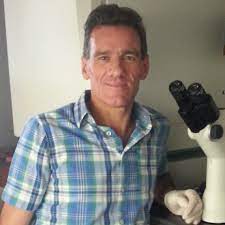Funding Summary
In this project, Dr. Nicholls will begin studies towards an innovative gene therapy strategy for PWS, by developing a single adeno-associated virus (AAV)-vector that incorporates up to 80% of the PWS genes. This project will generate miniaturized components from the PWS genes and build an AAV vector carrying eight PWS genes. Delivery and expression of each of the genes will be verified in recipient cells. Future studies will validate the PWS-AAV gene therapy vector in a PWS pancreatic beta-cell model and a PWS mouse model, establishing the feasibility of this gene therapy approach.
Dr. Theresa Strong, Director of Research Programs, shares details on this project in this short video clip.
Please find the full webinar for all funded grants this cycle here.
Lay Abstract
Overcoming the problematic behaviors including strong drive to overeat and obesity with negative impacts on life expectancy and/or life quality is of upmost importance for individuals with Prader-Willi syndrome (PWS) and their families. A broader range of clinical symptoms in PWS further increases the challenges. Despite advances in understanding genetic causes of PWS and having animal models that mimic some clinical components, the actual cause(s) of PWS clinical features is not known. This is in part because many organ systems are affected in PWS, in part because PWS is a developmental disorder starting before birth, during neonatal and childhood periods, and then persisting throughout life, and in part due to the complexity that PWS involves not just one gene, not just two genes, but a cluster of about 10 genes all with different unknown or poorly understood functions. As a consequence, therapeutic approaches in PWS have relied on early clinical diagnosis and DNA testing to establish the genetic alteration confirming PWS that then allows behavioral modification especially with respect to diet to prevent provision of excessive food intake when transitioning from failure to thrive with poor eating to voracious interest in food and insatiable overeating. Early diagnosis of PWS also allows initiation in infancy of growth hormone (GH)-treatment, leading to improvements in muscle function, body composition, height, and the overall clinical outcome in PWS. Nevertheless, GH treatment is not a cure and many clinical issues remain including hyperphagia (constant desire to eat), episodes of low blood sugar (hypoglycemia), and significant behavioral problems. There are ongoing medication trials to test drugs that affect hyperphagia or behavior, but the effectiveness of these remains in question. New therapies may depend on understanding the complex cellular phenotypes or by gene-based approaches. A so-called “epigenetic therapy” in which the inactive PWS-genetic region will be reactivated by changing the gene regulation is posited but this is yet to be established for PWS and may have significant side effects due to altered expression for non-PWS genes. A second genetic therapy approach would be to replace the silent or missing PWS-genes, complicated by the large number of genes in PWS. In this project, we will begin studies aiming to develop an innovative genetic therapy approach in which a single adeno-associated virus (AAV)-vector will code for up to 80% of the PWS genes, previously not thought possible. The single Aim will use DNA synthesis with unique miniaturized gene components to build the AAV vectors carrying the 8 PWS genes and verify expression of each component in cells. Future studies will be to validate the PWS-AAV gene therapy vectors in 1) a PWS ß-cell model with functional deficits of insulin secretion and reduced chaperone proteins required for protein secretion, and 2) mouse PWS model with severe clinical features. This project will develop the genetic therapy reagents and begin to assess feasibility to replace most PWS-genes, representing a remarkable opportunity to effectively deliver PWS-gene products into cells.
Funded Year:
2021
Awarded to:
Robert Nicholls, Ph.D.
Amount:
$64,800
Institution:
University of Pittsburgh
Researcher:

Robert Nicholls, PhD




